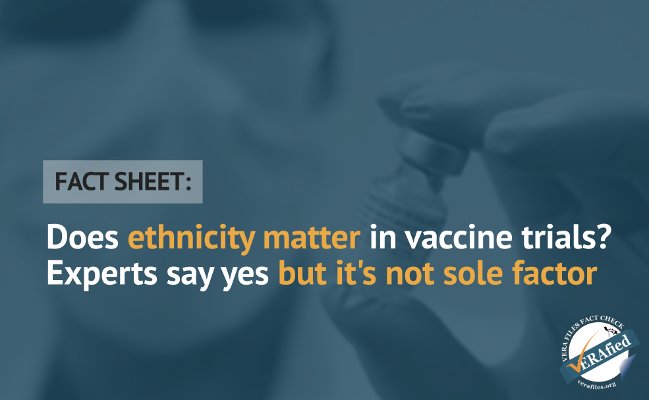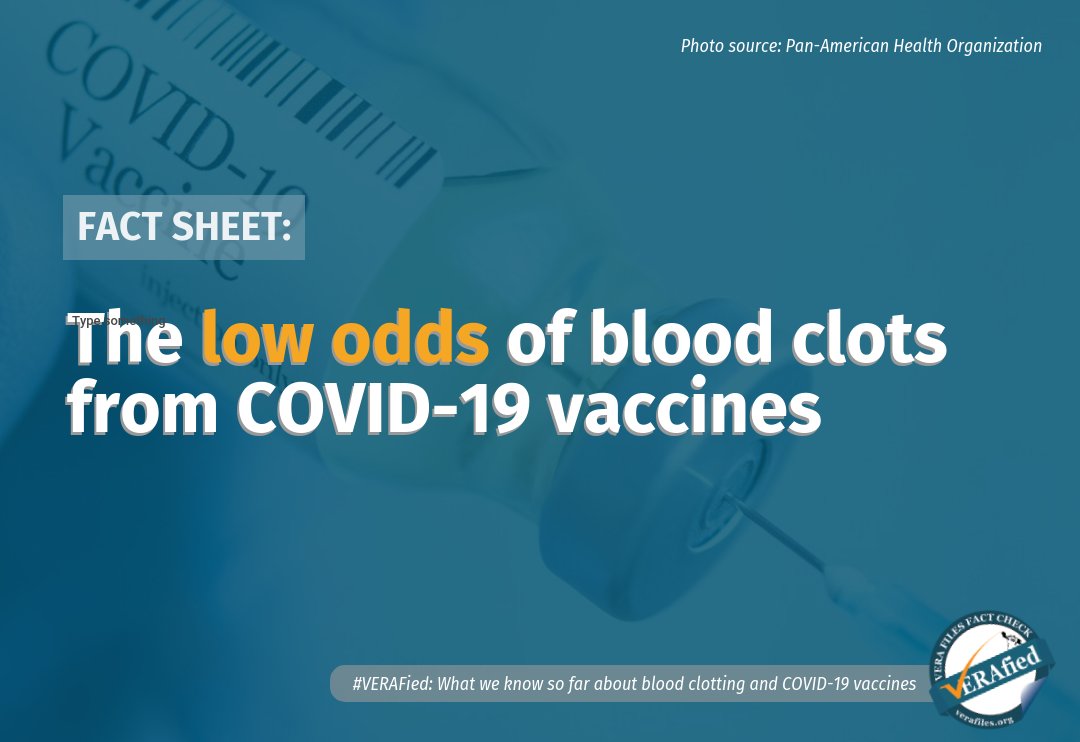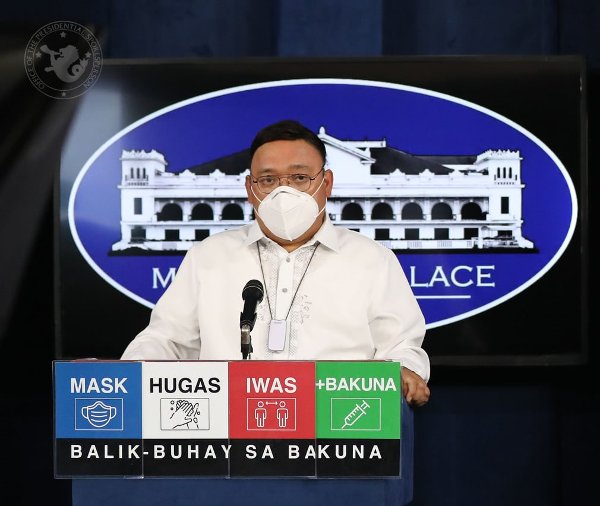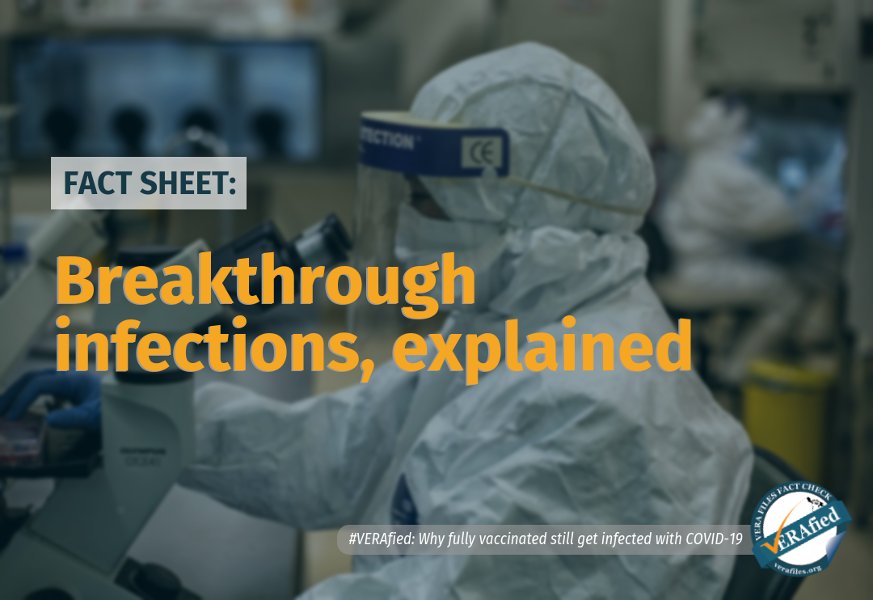Although there has been no conclusive data yet on the safety and efficacy of some candidate vaccines against the coronavirus disease 2019 (COVID-19), top government officials have already vouched for their effectiveness.
In trying to boost trust on CoronaVac, a vaccine developed by Chinese firm Sinovac Biotech, Palace Spokesperson Harry Roque, in his Jan. 14 press briefing, talked about neighboring Indonesia, which started its immunization program a day prior:
“Ano pong significance na ginagamit na sa Indonesia ang Sinovac? Alam niyo po sa mga clinical trials, importante na magamit ‘yung bakuna sa … kaparehong ethnicity, kasi nga po ‘yung genetic make-up. Eh ang Filipino at mga Indonesians po, pareho tayong Malay, ‘no? So kung napatunayang 91.25% effective po ang bakuna sa Indonesia, na kapwa Malay natin, baka ganun din po ang magiging resulta ‘pag nagbakuna tayo dito sa Pilipinas.
(What is the significance that Indonesia is using Sinovac? Well, you know that in clinical trials, it is important that the vaccine is tested in a … similar ethnicity, because of the genetic make-up. Filipinos and Indonesians, we’re both Malays, right? So if it’s been proven that the vaccine is 91.25% effective in Indonesia — who are also of Malay descent — then maybe the resulting effectiveness would be similar if we use it in the Philippines.)”
Source: PTV Official Youtube Channel, WATCH: Press briefing with Presidential Spokesperson Harry Roque | January 14, 2021, Jan. 14, 2021, watch from 7:50 to 8:20.
Roque’s claim that CoronaVac has been “proven 91.25% effective” in Indonesia is wrong. Interim data from the vaccine’s phase III trials in the country show the efficacy rate is at 65.3%. (See VERA FILES FACT CHECK: To boost trust in Sinovac, Roque repeatedly cites wrong data)
Vaccine efficacy differs from its effectiveness. Efficacy refers to results from studies “carried out under ideal conditions” like in a clinical trial, according to the United States (U.S.) Centers for Disease Control and Prevention (CDC), while effectiveness is based on the performance of a vaccine under “real-world” conditions.
The spokesman’s statement came a day after President Rodrigo Duterte assured Filipinos that the China-made vaccines the government is buying are “safe, sure, and secure.”
The government had earlier secured 25 million doses of the Sinovac vaccine even as the latter has yet to get an emergency use authorization (EUA) from the Food and Drug Administration (FDA).
What do regulatory bodies consider in approving a COVID-19 vaccine for general or even emergency use? Is ethnicity a factor?
Here are four things you need to know:
First things first. What are clinical trials and why are they important?
Clinical trials, in the context of vaccine development, are a three-phase process before a prospective vaccine is reviewed and approved for general use. These tests are administered to human volunteers in a controlled setting to assess a vaccine’s safety and efficacy. (See VERA FILES FACT SHEET: Five questions on the COVID-19 vaccines, answered)
Each phase of a clinical trial aims to address a set of concerns before a vaccine can be approved for use of the general public:
To date, FDA has cleared Janssen, Clover Pharmaceuticals, and Sinovac for conducting clinical trials in select cities in the country.
The Philippines is also participating in the Solidarity Vaccine Trials initiated by the World Health Organization.
How does ethnicity factor in?
Ethnicity and race are “believed to be important to consider when evaluating vaccine candidates,” a global team of public health experts convened by international nonprofit Meedan told VERA Files in an email interview on Jan. 19.
The Meedan team cited a 2016 study on an inactivated influenza vaccine published in the United States (U.S.) National Institutes of Health (NIH), which found that differences between the immune response of African-American and Caucasian trial participants were linked to genes being expressed differently. The study “confirmed” findings of earlier research that “ethnicity can influence immune responses to vaccination.”
In the case of the COVID-19 vaccines, Meedan experts say it is “possible” that there could also be differences in immune responses, hence the “need for diverse participants in clinical trials.”
Health Undersecretary Maria Rosario Singh-Vergeire, in an email to VERA Files on Jan. 19, said ethnicity is “included in the evaluation of COVID-19 vaccines” by the country’s regulatory bodies.
The “ideal situation” is to have all vaccine candidates conduct their clinical trials in the country to “determine its effect on the Filipino population” but this is not always possible due to a “number of challenges,” such as logistical concerns, limited time, and number of participants, Vergeire said.
Thus, the country’s vaccine evaluators “ensure” that manufacturers that have not conducted vaccine trials in the Philippines had a “good representative sample of Asians [or a] race that is comparable to the characteristics of the Filipino population” in its trial sample populations.
Vergeire said pharmaceutical firms are required to show “clinical trial data and results with the inclusion of racial distribution showing Filipinos [or] Asians [or] Pacific Islanders” as part of their application for an EUA with FDA.
“Unfortunately, clinical trials have mostly recruited a limited pool of people for participation, historically as well currently,” Meedan experts noted. While there are efforts to diversify the race and ethnicity of participants in COVID-19 vaccine trials, the Meedan COVID-19 database said:
“There remains inequities in who has sufficient information to provide consent as well as who has the time and resources (such as transportation access) to participate.”
Source: Meedan COVID-19 Expert Database, What do we know about the vaccine clinical trials for people of various ethnicities and in various countries around the world?, Jan. 19, 2021
So, if a vaccine has been reported to have ‘high’ efficacy rates in a country with similar ethnicity, does that mean the vaccine will ‘likely’ yield the ‘same results’ in Filipinos?
Not really.
Vaccine efficacy “depends on the type of vaccine and the population inoculated.” Hence, “different types of vaccines and different populations may produce varying outcomes,” explained Vergeire.
Racial distribution in clinical trial data is reviewed by the government’s vaccine experts to “determine if based on the available evidence, it is reasonable to believe that the efficacy rate of a certain vaccine between similar races would be more or likely the same,” she added.
The health department spokesperson said, given that all COVID-19 vaccines are “fairly new”:
“…a definitive conclusion on the comparability of vaccine efficacy rates between similar races can only be made after [post-marketing surveillance and studies] or if a certain vaccine undergoes clinical trials in the countries involved.”
Source: Department of Health, Letter to VERA Files: Jan. 22, 2021, Jan. 22, 2021
Meedan experts said efficacy rates do not describe how well a vaccine works on the general public in real-world conditions.
They cited as an example the efficacy rates reported by Pfizer/BioNTech and Moderna at 95% and 94.1%, respectively. These indicate only how their vaccines “prevent symptomatic disease in people, not how the vaccine candidates reduce transmission.”
The “efficacy” and “effectiveness” of a vaccine, though “often” used interchangeably, are two different things, based on an explainer by the Global Alliance for Vaccines and Immunization.
“A vaccine with an efficacy of 90% in a trial, for instance, means there was a 90% reduction in cases of disease in the vaccinated group compared to the unvaccinated (or placebo) group. But efficacy in laboratory conditions does not always translate to effectiveness, and so an efficacy trial can overestimate a vaccine’s impact in practice.”
Source: Global Alliance for Vaccines and Immunization, What is the difference between efficacy and effectiveness?, Nov. 18, 2020
What does the FDA look for when evaluating vaccines for emergency and general use?
In the absence of an approved COVID-19 vaccine for general use, the FDA may issue an EUA if a candidate meets its set criteria, as determined by an expert panel, including that:
- it is reasonable to believe that the vaccine “may be effective” to prevent, diagnose, or treat COVID-19 based on the “totality of evidence available,” including data from “adequate and well-known controlled trials”;
- the known potential benefits of the product, when used to diagnose, prevent, or treat COVID-19, “outweigh” its known potential risks, if any; and
- there is “no adequate, approved, and available alternative to the product” for diagnosing, preventing, or treating the disease — meaning, there is still no registered drug or vaccine with the same purpose.
FDA guidelines state that holders of EUAs have “the ultimate responsibility for monitoring the safety of their products,” including inventory control and maintenance of appropriate storage under delivery.
Still, the FDA, in conjunction with concerned offices of the Department of Health, is tasked to conduct post-authorization monitoring, specifically on the product’s “deployment, additional relevant information, and the status from the manufacturer concerning full-product life-cycle.”
The FDA granted the Pfizer/BioNTech vaccine an EUA on Jan. 14. As of Jan. 22, AstraZeneca, Gamaleya, and Sinovac have submitted applications for EUA approval of their vaccines, which are now under evaluation. Bharat Biotech has also applied for an emergency permit but still has to complete submission of requirements for its application.
FDA follows a stricter and more rigid evaluation process for granting a certificate of product registration (CPR) for a vaccine.
Vaccine manufacturers must submit for review a range of requirements, including a list of countries where the vaccine is already licensed, results of stability studies on top of clinical trials, information on manufacturing and production process, and cold-chain procedures, among others.
Sources
PTV Official Facebook Page, WATCH: Press briefing with Presidential Spokesperson Harry Roque | January 14, 2021, Jan. 14, 2021
PTV Official Youtube Channel, WATCH: Press briefing with Presidential Spokesperson Harry Roque | January 14, 2021, Jan. 14, 2021
Centers for Disease Control and Prevention, Measures of Public Health Impact, May 18, 2012
World Health Organization, Overview of Vaccine Efficacy and Vaccine Effectiveness, Accessed Jan. 25, 2021
Presidential Communications Operations Office, Talk to the People of President Rodrigo Roa Duterte on Coronavirus Disease 2019 (COVID-19), Jan. 13, 2021
PTV Official Youtube Channel, WATCH: President Rodrigo Duterte’s Talk to the Nation (January 13, 2021), Jan. 13, 2021
Presidential Communications Operations Office, PH enters into term sheet agreement for 30 million doses of Covovax, Jan. 11, 2021
ABS-CBN News, Philippines secures 25 million COVID-19 vaccine doses from China’s Sinovac, Jan. 11, 2021
Inquirer.net, PH secures 25-M COVID vaccines from China’s Sinovac, Jan. 11, 2021
CNN Philippines, PH secures 25 million Sinovac doses, first 50,000 available in February, Jan. 11, 2021
Centers for Disease Control and Prevention, The Journey of Your Child’s Vaccine, Accessed Jan. 21, 2021
Centers for Disease Control and Prevention, Vaccines and Immunizations, Accessed Jan. 21, 2021
Department of Health, DOH Beat COVID-19 Media Forum | January 22, 2021, Jan. 22, 2021
World Health Organization, Accelerating a safe and effective COVID-19 vaccine, Accessed Jan. 25, 2021
Department of Health, COVID-19 INTER-AGENCY TASK FORCE FOR THE MANAGEMENT OF EMERGING INFECTIOUS DISEASES RESOLUTIONS, Accessed Jan. 25, 2021
Inter-Agency Task Force on Emerging Infectious Diseases, Resolution No. 47, June 19, 2020
Meedan COVID-19 Expert Database, What do we know about the vaccine clinical trials for people of various ethnicities and in various countries around the world?, Jan. 19, 2021
Meedan COVID-19 Expert Database, About, Accessed Jan. 23, 2021
National Institutes of Health, OncoTarget: Race-related differences in antibody responses to the inactivated influenza vaccine are linked to distinct pre-vaccination gene expression profiles in blood, Sept. 27, 2016
Department of Health, Letter to VERA Files: Jan. 20, 2021, Jan. 20, 2021
Department of Health, Letter to VERA Files: Jan. 22, 2021, Jan. 22, 2021
Meedan COVID-19 Expert Database, In what way could the public better understand efficacy rates of COVID-19 vaccines published by various companies, and do the efficacy rates affect a population’s herd immunity if that is the ideal goal of vaccination programs?, Jan. 19, 2021
Pfizer, PFIZER AND BIONTECH CONCLUDE PHASE 3 STUDY OF COVID-19 VACCINE CANDIDATE, MEETING ALL PRIMARY EFFICACY ENDPOINTS, Nov. 18, 2020
National Institutes of Health, Peer-reviewed report on Moderna COVID-19 vaccine publishes, Dec. 30, 2020
Global Alliance for Vaccines and Immunization, What is the difference between efficacy and effectiveness?, Nov. 18, 2020
Philippine Food and Drug Administration, FDA Circular No. 2020-036 || Guidelines on the Issuance of Emergency Use Authorization for Drugs and Vaccines for COVID-19, Dec. 14, 2020
Philippine Food and Drug Administration, FDA Philippines Grants Emergency Use Authorization to Pfizer-BioNTech COVID-19 Vaccine, Jan. 14, 2021
Philippine Food and Drug Administration, Checklist of Requirements for Registration of Vaccines/Biologic Products, Accessed Jan. 23, 2021
(Guided by the code of principles of the International Fact-Checking Network at Poynter, VERA Files tracks the false claims, flip-flops, misleading statements of public officials and figures, and debunks them with factual evidence. Find out more about this initiative and our methodology.)





